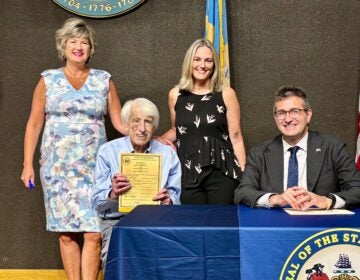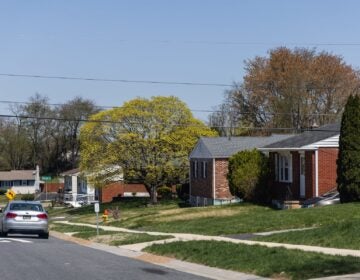Out-of-staters flocking to beach homes prompt discussions over who should be allowed in Delaware
Gov. Carney’s executive order requires out-of-staters to quarantine and law enforcement to pull over out-of-state vehicles.
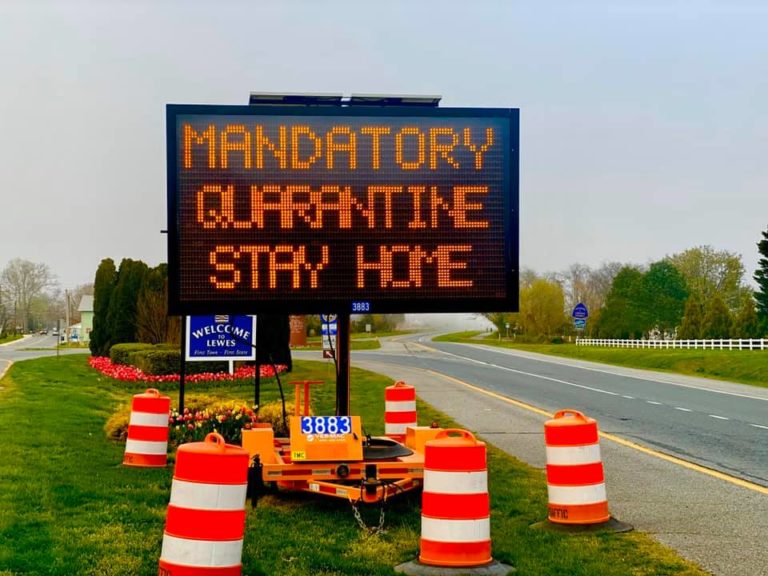
Road sign alerts drivers of mandatory quarantine. (Photo courtesy of Joy Marie)
Delaware officials say limiting out-of-state visitors will prevent unmanageable spikes in coronavirus cases, especially in beach towns where many people from nearby states own second homes.
Delaware Gov. John Carney issued an executive order over the weekend requiring out-of-state visitors to quarantine for 14 days upon their arrival to Delaware, unless they’re a health care worker or assisting an essential business.
Law enforcement will be able to pull over vehicles with out-of-state license plates, and question drivers on their travels. A violation of the order constitutes a criminal offense.
Over the past few weeks, beach town residents have voiced concerns about travelers, and the many out-of-state residents, including New Yorkers, who have beach homes in places like Rehoboth, Bethany and Lewes.
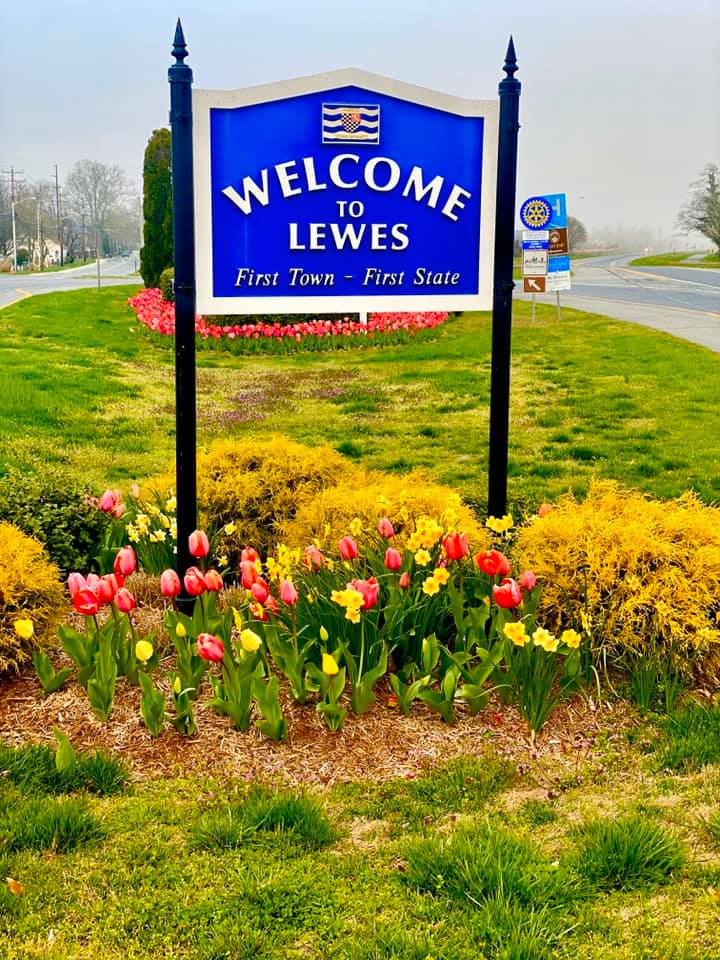
Residents and officials say despite the COVID-19 pandemic, visitors have flocked to the beach towns, potentially spreading the virus.
A week ago, Carney ordered the closure of beaches after large gatherings took place in Rehoboth. Prior to that, he closed dine-in options at restaurants and bars.
“There’s no real need to come down here, so if you’re coming to your second home, we would prefer you stay in your first home during this period of time,” said House Speaker Pete Schwartzkopf, who represents Rehoboth.
“Help us get through this thing. … There’s 23,000 people in my district, and that’s before the beach people. When they get here, it can be 125,000 on any given weekend. … The hospitals are going to have a hard enough time when it’s just the people who live here [getting sick]. What’s going to happen when the second homeowners get here? They’re going to stress out our hospitals and they’re not going to have the facilities available for the people who live here.”
Following reports that New Yorkers are fleeing their homes for states with fewer coronavirus cases, Rhode Island ordered troops to stop New Yorkers from entering the state. Florida also plans to screen New York motorists at checkpoints.
Schwartzkopf recommends message boards on Delaware roads and public service announcements in other states to inform people about Delaware’s executive order.
“I don’t know if people even know we’re quarantined. I haven’t talked to any of the out-of-staters coming here. I can only surmise they think it’s better here than wherever they’re coming from. I don’t think it’s going to be, I think we’re all going to be as hit as hard as everyone else,” he said.
“It’s not that we don’t want the business, we do want the business when we’re back up and ready for business. But right now all nonessential businesses are closed. They’re coming here to get away from what’s going on in their states, but we’ve got the same problem and they’re going to make our problem worse by coming down here and taxing our ability to take care of the people who live here.”
Liz Keller, Director of Tourism agrees this is not the time to visit a second home.
“The state and worldwide tourism industry, like many other industries, has been profoundly impacted by the coronavirus. With that said, the number one thing we can do right now is stay home to prevent a surge, and try to work to maintain the health and safety of Delawareans,” she said.
“When it’s warm, everyone wants to be outside. Right now, what we hope everyone will do is stay home. Our beaches will always be there when the time is right. We look forward to having you, hopefully in the summertime.”
Keller encourages locals to support local businesses by shopping online and ordering takeout.
Kat Lombardo of Lewes has lived in Delaware for 10 years, but is originally from western New York. She said she’s seen rumblings on social media about out-of-staters visiting the beaches, but as a transplant, she said she has mixed feelings.
Lombardo agrees shelter-in-place is the best way to flatten the curve, but doesn’t believe people who own homes should be forced out of the state.
“I feel like if you own a house here, where do we draw the line? How can we say it’s right or wrong for you to come down here? Two or three weeks ago this situation was completely different, and if we had sheltered in pace it would be a different situation, but people have been coming and going all along and I feel like they have a right to be here just as much as everyone else, because they own their home,” she said.
“We live in a small community, we have tiny community hospitals that are going to become overwhelmed very quickly. Most people who can afford second homes down here are aging, so they’re going to use those ICU beds, which we know are limited. I agree it’s a problem. But I don’t know [if] it’s fair to say you can’t come here.”
WHYY is your source for fact-based, in-depth journalism and information. As a nonprofit organization, we rely on financial support from readers like you. Please give today.




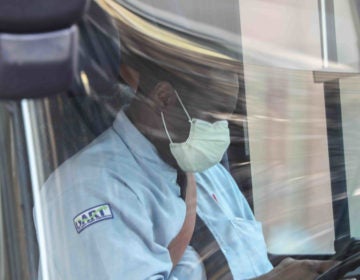
![CoronavirusPandemic_1024x512[1]](https://whyy.org/wp-content/uploads/2020/03/CoronavirusPandemic_1024x5121-300x150.jpg)
